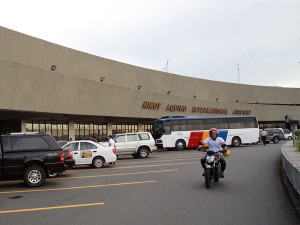Pregnant ‘Filipina’ trying to skirt China’s one-child rule faces deportation
MANILA, Philippines—Philippine immigration authorities arrested a pregnant Chinese woman who tried to slip into Hong Kong by pretending to be a Filipino in the hopes of evading China’s one-child policy.
Bureau of Immigration (BI) officer-in-charge Siegfred Mison said Cai Quiye was arrested at the Ninoy Aquino International Airport (NAIA) last Sunday after Hong Kong immigration sent her back to Manila after discovering that she was using a fake Philippine passport.
The Chinese woman reportedly left Manila using her Chinese passport. But upon arriving at the Hong Kong airport, she pretended to be a Filipino by presenting a fraudulent Philippine passport under the name of Aileen de Leon Abella to the immigration officer. She was outrightly denied entry and sent back to Manila.
According to lawyer Jose Carlitos Licas, BI acting intelligence chief, the woman, who is six-months pregnant, used the fake passport as she wanted to give birth to her second child in Hong Kong and evade China’s one-child policy.
“She may have wanted to deliver her second child in Hong Kong because in China, couples that sire a second child are meted stiff fines,” Licas said.
During investigation, the woman reportedly admitted paying a certain Mr. Chen P200,000 in exchange for her fake passport.
“It was also this Mr. Chen who allegedly instructed her to use her Chinese passport only upon her departure from Manila and that in Hong Kong, she should present her Philippine passport which already contained a bogus Philippine immigration departure stamp,” Licas said in a statement.
The woman also told authorities that her husband traveled with her to Hong Kong but that they parted ways after she was denied entry at the airport.
The woman will be deported to China as soon as the BI Board of Commissioners determines that she committed an offense that is a ground for deportation under the existing regulations, according to Mison.
“This incident should serve as a warning to other foreigners against dealing with syndicates selling fake Philippine passports,” Mison added.
